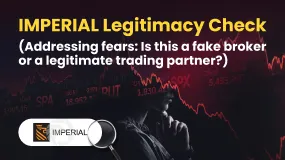Abstract:Online scams in the Philippines are escalating, with text and call-based fraud targeting millions. Learn about the impact and how to protect yourself from cybercrimes.

The growth of digital tools has made life easier but also brings a hidden danger: online scams. In the Philippines, these scams are becoming a big problem as cybercriminals use clever tricks to steal money and personal information, causing financial loss and emotional pain for many people.
A 2024 Kaspersky report says the Philippines ranks third worldwide for web-based threats, with 42.3 percent of internet users affected by these attacks. This shows how serious the issue is, as scams keep growing with the rise of new technology.
Common Scam Methods
Scammers in the Philippines use many ways to trick people, from simple text messages to complex online fraud. Factors like poverty, widespread smartphone use, and low digital knowledge make the country an easy target for these crimes.
Even with warnings from the government and companies, scams keep increasing. Scammers are quick to learn new technology and find fresh ways to fool people. One popular scam is text-based fraud, like fake job offers, prize notifications, or messages pretending to be from family members asking for cash. These texts are designed to make people act fast without thinking.

Rising Scam Numbers
According to the Philippine News Agency, scam messages and calls are growing every quarter. Over 6 million scam texts and more than 600,000 scam calls have been reported, and the numbers are still rising despite efforts to stop them. Scammers are very adaptable, always changing their methods to avoid getting caught.
In the past, scammers sent out tons of text messages to random phone numbers. Now, they prefer making phone calls with a more personal touch. These calls often pretend to be from banks or government offices, using fear or authority to trick people into sharing private details like bank account information.
AI-Powered Scams
Scammers are now using artificial intelligence (AI) to make their tricks even better. AI tools help them change their voices to sound more real, making it harder for people to spot the fraud. The Cybercrime Investigation and Coordinating Center reports a 74 percent jump in scam calls in early 2025, with cases rising from 108,157 in Q1 2024 to 351,699.
The most common scam calls involve fake loans (55 percent), VIP rewards (24 percent), debt collection tricks (10 percent), transaction checks (5 percent), job offers (3 percent), and delivery scams (3 percent).
This shift to phone calls shows scammers are focusing on targeted attacks. They use social engineering, pretend to be someone else, and gather personal details from social media. Tools like ChatGPT help them create convincing stories, making their scams more dangerous.
The Need for Action
The fast rise of cybercrimes in the Philippines shows why people need to be more aware and take steps to stay safe. While the government and businesses are working to fight scams, the ever-changing tricks mean people are still at risk. Filipinos must learn how to protect themselves from becoming the next victim of these smart online frauds.











